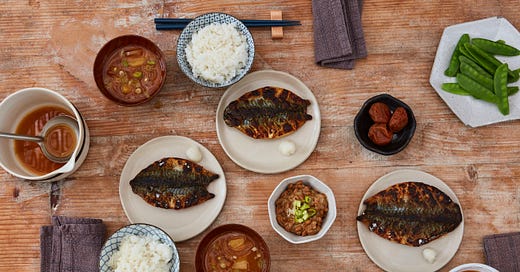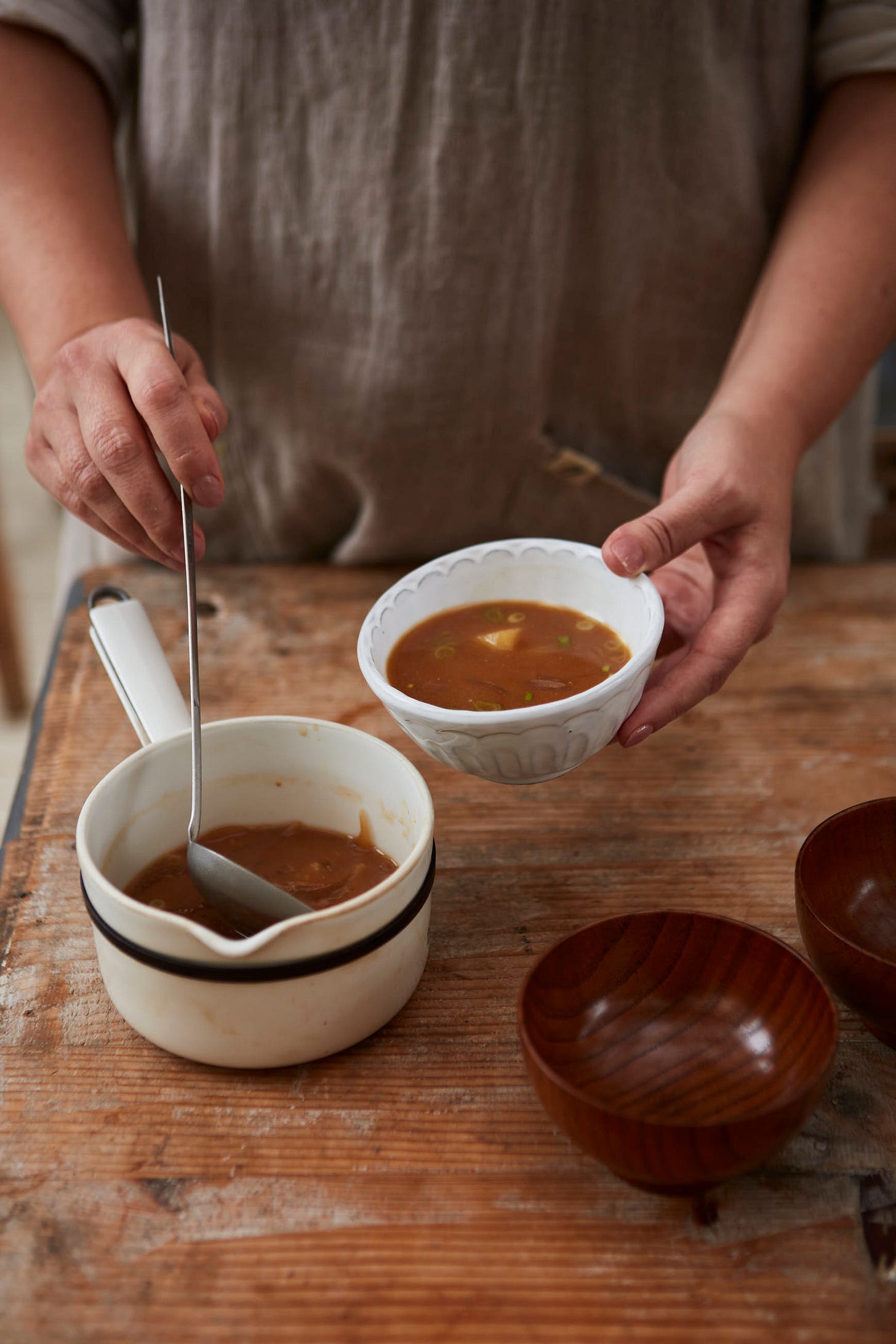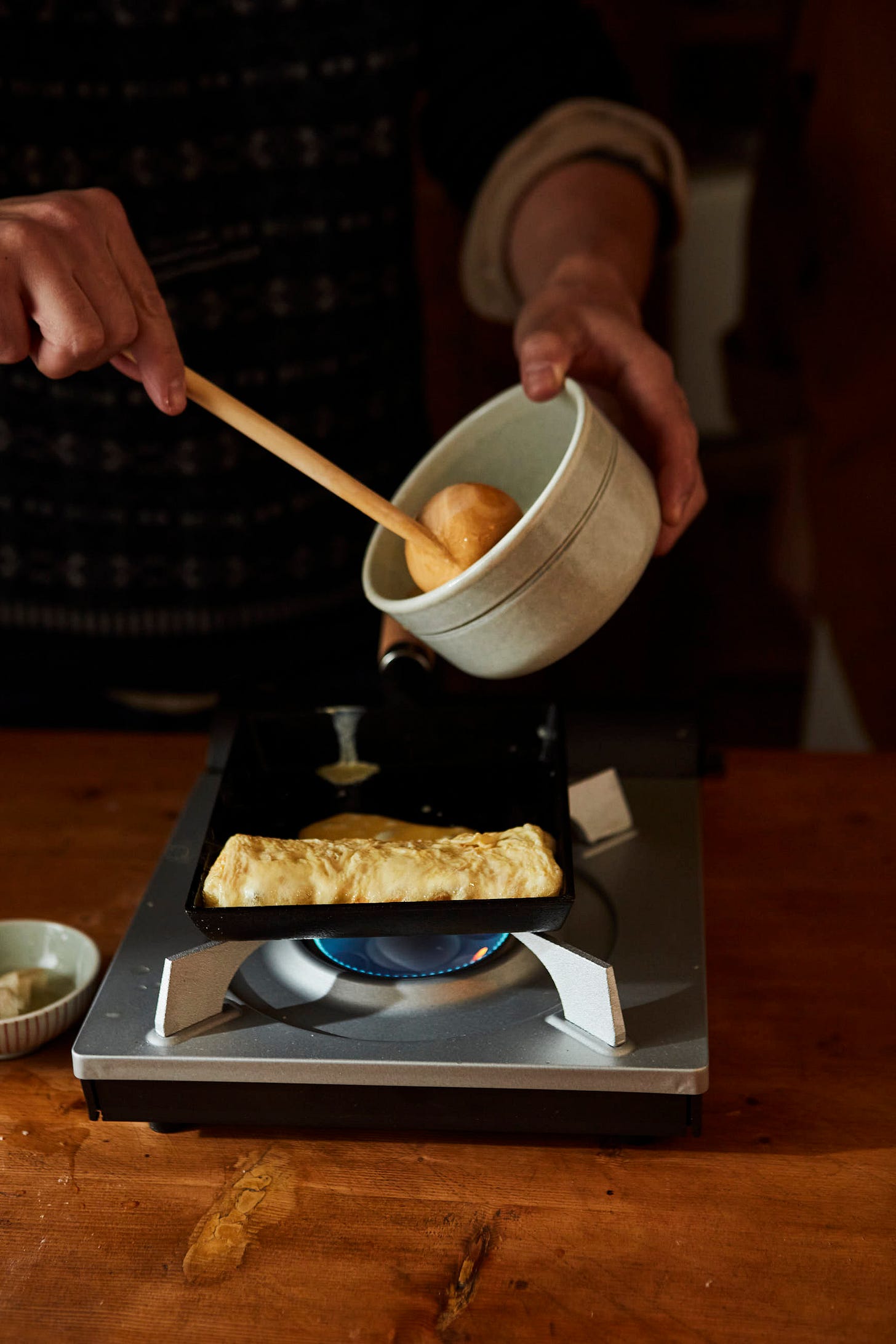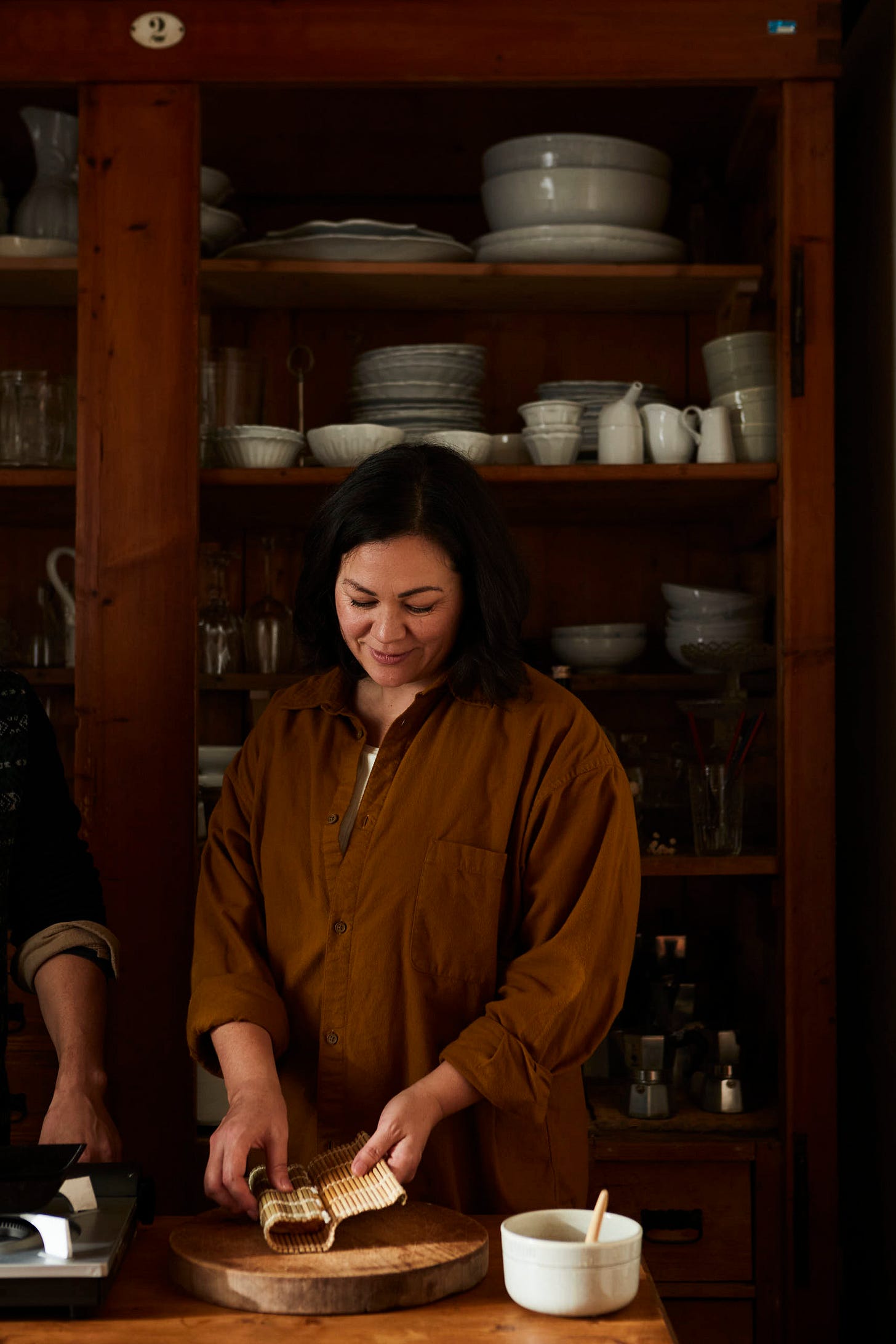Less than a month to go before Gohan: Everyday Japanese Cooking is out in the world (well at least the northern hemisphere! 12 September in the US and 14 September in the EU/UK!), and I cannot wait to share it all with you so I have a little taste of it here for you along with some outtakes from the book.
There is so much I want to share about what I think makes Japanese home cooking so special — that it’s so fast and easy (this is really the food I turn to when I am tired and need something on the table asap!). That it is delicious, seasonal cooking (seasonal means better flavour, but you’re also often paying less for the ripest produce and cooking food that you feel like eating — cold slippery, cucumber and sesame noodles in the summer, or warming hot pots full of root vegetables in the winter). That it is family friendly and so versatile so you can adjust ingredients to your liking and what you have available.
So I hope you are going to love it for all those reasons too. But the other reason I love Japanese home cooking is for the nostalgia it brings me. One bite and I’m back on one of the many trips to Japan my mother took us on, or the summer I spent at my grandparents place on my first overseas trip alone at 12, or I’m right at my grandmother’s table having breakfast.
My obaachan’s breakfast was one of the things I looked forward to the most. There is nothing I love quite as much as a Japanese breakfast. It looks a little bit like a lunch or dinner, and it is so complete and filling that I spend more time enjoying eating it. I always feel so satisfied and nourished after a Japanese breakfast — so different from my usual quick breakfast of yogurt and muesli or coffee and a pastry.
There is always a bowl of gohan — steamed rice — and miso soup. There might be some grilled fish or perhaps some egg omelette. And a couple of different little bowls of simple vegetable dishes or pickles. I always looked forward to the small block of fresh tofu that would inevitably be part of Obaachan’s breakfast, there is nothing like tofu made just that morning. My grandparents had several tofu shops on their street to choose from — this is like having a mozzarella maker on your street! The freshest stuff! So delicious you only need a drizzle of soy sauce and some grated ginger or a pinch of flaky, umami katsuobushi.
I couldn’t write this book without dedicating a chapter to breakfast. In many ways, I think if you start with those recipes, then you have the foundations of a perfect Japanese meal, which is sometimes represented by the phrase ichiju sansai — “one soup three dishes.” Rice doesn’t count as one of the three dishes as it’s always a given. There are always pickles too. So you have miso soup and three other dishes, usually some kind of protein like fish or tofu and a couple of seasonal vegetable dishes, or even fruit.
If you are curious to see more ideas or just how varied a meal like this can be, this one and this one are some of my favourite instagram accounts of Japanese breakfasts!
Japanese breakfast is also the way I think you can still experience what Japanese home cooking is like even if you are traveling in Japan and staying in hotels, not in someone’s home. Because even hotel breakfasts (but especially if you are staying in a ryokan, a typical Japanese inn) have the basic components of a homemade Japanese breakfast. You might even find packets of natto (fermented soy beans, admittedly these are not everyone’s favourite, more or a love it or hate it kind of food, it took me about 40 years to wake up to how good it is — I heartily recommend you try it if you are adventurous), if you are really keen for a local experience!
And before eating a Japanese meal, you should always do one small, lovely ritual. You say itadakimasu. Some liken it to saying “bon appetit” before a meal but it’s not really that, it is so much more, it is really saying thank you to everything that feeds you — here’s a reading from my introduction that explains itadakimasu with a little story:
If you haven’t already, you can pre-order my book here, or ask your local bookshop or your local library to get it in.
Why are preorders such a big deal? Because it shows publishers and bookshops that this book topic is important to readers and shows support for authors. Book riot explains it so well (I saw this on Sarah Petersen’s post and she explains it so well over there too!):
That author you love who you’ve been reading forever? They rely on your preorders. That friend of yours who finally got a book picked up by a small press? They desperately need your preorders. Debut authors especially need a solid showing in book preorders to prove to the publisher that they have a place in the market. And an author’s best first shot at landing on one of the big bestseller lists is in that first week of sales, a number that’s bolstered by preorders.
A book preorder is a simple concept, but the impact it can have, particularly for authors and readers, is anything but simple. We read, we love stories, and we engage with these worlds and characters. Book preorders can help ensure that process continues, and it gives you a voice in publishing. So whether it’s through your local bookstore, Amazon, or your public library, check out what’s releasing soon and consider preordering those books.
For those who have already preordered, I do have something up my sleeve for you, it’s a mini ebook of extra Japanese recipes and an index of “hidden” recipes in the book — hidden in quotation marks because you can combine different parts of different recipes to make new dishes that I love!
Have you had Japanese breakfast before, if so what is your favourite part about it?
These outtakes from the cookbook are by Yuki Sugiura, who is a Japanese food photographer based in London. We took these together over two days at my favourite photoshoot location and one of the prettiest B&Bs in Tuscany, Valdirose. The rest of the photos you’ll see in Gohan were taken by me, at home, with my own plates and bowls and chopsticks. Very homely!








I just love that you can tuck an audio note in here. What a beautiful story! ❤️
I have not ever had a Japanese breakfast, and I think it would be a stretch for me--but I think my daughter would love it. She happily polishes off last night’s leftover fish at breakfast and loves strong, savory and salty flavors best.
Having recently returned from a 2 week solo journey in Japan, I share your reverence for Japanese breakfast. It was the surprise of the trip how much I enjoyed and looked forward to starting my day, slowly, with this beautiful combination of foods. I’m now on the hunt in London for the perfect Japanese pickles.